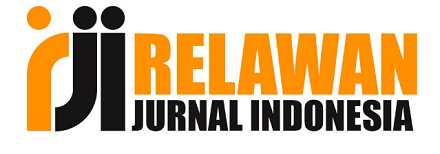MOTIVASI, KEMANDIRIAN DAN PENGETAHUAN KEWIRAUSAHAAN PENGARUHNYA TERHADAP ENTREPRENEURIAL INTENTION
DOI:
https://doi.org/10.33474/jimmu.v7i2.18665Abstract
Â
Tujuan penelitian adalah: 1) Untuk mengetahui kemandirian terhadap niat wirausaha 2) Untuk mengetahui pengaruh motivasi terhadap niat wirausaha. 3) Untuk mengetahui pengaruh pengetahuan kewirausahaan terhadap niat kewirausahaan. Jenis penelitian adalah penelitian kuantitatif. Metode pengumpulan data melalui kuesioner dengan bantuan google form. Populasi penelitian adalah mahasiswa STIE Malangkuçeçwara angkatan 2018 hingga angkatan 2021 yang sudah menempuh mata kuliah kewirausahaan dan membuka 891 dengan rincian 409 untuk program studi akuntansi dan 482 untuk program studi manajemen. Metode pengumpulan data melalui kuesioner. Jumlah sampel diambil berdasarkan rumus slovin yaitu sebesar 277 responden. Penentuan sampel penelitian dilakukan secara purposive random sampling. Dari jumlah kuesioner yang disebarkan terhadap responden, 250 jawaban yang dapat dianalisis. Data dianalisis dengan menggunakan aplikasi smart PLS 3.0. Hasil penelitian menunjukkan bahwa: 1) Kemandirian berpengaruh signifikan positif terhadap niat berwirausaha. 2) Motivasi berpengaruh signifikan positif terhadap niat berwirausaha. 3) Pengetahuan kewirausahaan berpengaruh signifikan positif terhadap niat berwirausaha. Variabel pengetahuan memiliki pengaruh paling besar terhadap niat berwirausaha. Implikasi hasil penelitian menunjukkan bahwa pengetahuan kewirausahaan berperan besar dalam membekali dan mengembangkan minat wirausaha mahasiswa.
Kata Kunci:Â Kemandirian, motivasi, pengetahuan kewirausahaan, entrepreneurial intention
Â
The research objectives are: 1) To determine the independence of entrepreneurial intentions 2) To determine the effect of motivation on entrepreneurial intentions. 3) To determine the effect of entrepreneurial knowledge on entrepreneurial intentions. This type of research is quantitative research. The method of collecting data is through a questionnaire with the help of google form. The research population is STIE Malangkuçeçwara students class 2018 to class 2021 who have taken entrepreneurship courses and opened 891 with details of 409 for accounting study programs and 482 for management study programs. The method of data collection is through a questionnaire. The number of samples taken based on the slovin formula is 277 respondents. Determination of the research sample was done by purposive random sampling. From the number of questionnaires distributed to respondents, 250 answers can be analyzed. The data were analyzed using the smart PLS 3.0 application. The results showed that: 1) Independence had a significant positive effect on entrepreneurial intentions. 2) Motivation has a significant positive effect on entrepreneurial intentions. 3) Knowledge of entrepreneurship has a significant positive effect on entrepreneurial intentions. Knowledge variable has the greatest influence on entrepreneurial intention.
The implications of the research results show that entrepreneurial knowledge plays a major role in equipping and developing students' entrepreneurial interests.
Keywords:Â Independence, motivation, entrepreneurial knowledge, entrepreneurial intention
References
Abid Muhtarom, Hery Suprapto, & Muanifah Julia Agustin. (2021). Pengaruh Pengetahuan Kewirausahaan, Lingkungan Keluarga, Efikasi Diri, Sikap Mandiri, Kreativitas dan Motivasi terhadap Minat Berwirausaha di Masa Kebiasaan Baru pada Anggota Pelita Akademi Lamongan. Jurnal Penelitian Manajemen Terapan, 6(1), 16–26.
Adhimursandi, D. (2016). Faktor-Faktor Yang Mempengaruhi Niat Kewirausahaan Doddy Adhimursandi Fakultas Ekonomi dan Bisnis Universitas Mulawarman, Indonesia. Jurnal Ekonomi Dan Manajemen, 13(1), 193–210.
Arianto, D., & Puspita, A. D. (2019). Pengaruh Shift Kerja Terhadap Kinerja Melalui Variabel Kelelahan Dan Beban Kerja Sebagai Variabel Intervening Di Pt M.I. JISO : Journal of Industrial and Systems Optimization, 2, 23–28. https://doi.org/10.51804/jiso.v2i1.23-28
Asbari, M., Purwanto, A., & Budi, P. (2020). Pengaruh Iklim Organisasi dan Kepemimpinan Transformasional Terhadap Produktivitas Kerja Inovatif Pada Industri Manufaktur di Pati Jawa Tengah . Jurnal Produktivitas, 7(1), 62–69. https://doi.org/http://dx.doi.org/10.29406/jpr.v7i1.1797
Bae, T. J., Qian, S., Miao, C., & Fiet, J. O. (2014). The Relationship Between Entrepreneurship Education and Entrepreneurial Intentions: A Meta-Analytic Review. Entrepreneurship: Theory and Practice, 38(2), 217–254. https://doi.org/10.1111/etap.12095
Blegur, A., & Handoyo, S. E. (2020). Pengaruh Pendidikan Kewirausahaan, Efikasi Diri Dan Locus Of Control Terhadap Intensi Berwirausaha. Jurnal Manajerial Dan Kewirausahaan, 2(1), 51. https://doi.org/10.24912/jmk.v2i1.7424
Boahemaah, L., Xin, L., Dobge, C. S. K., & Pomegbe, W. W. K. (2020). The Impact of Entrepreneurship Education on the Entrepreneurial Intention of Students in Tertiary Institutions. International Journal of Management, Accounting & Economics, 7(4), 123–146. https://search.ebscohost.com/login.aspx?direct=true&AuthType=ip,sso&db=bth&AN=144332680&site=ehost-live&custid=s1020214
Carsrud, A., Yousif Ali, M., Alan Carsrud, by, & Brännback, M. (2020). Entrepreneurial Motivations: What Do We Still Need to Know? Cite this paper Related papers Mot ivat ions and Opport unit y Recognit ion of Social Ent repreneurs Fredric Kropp Management Science Let t ers 10 (2020) ***-*** Management Science Let t ers Det erminant s of ent re…. 10.
Debarun Chakraborty. (2016). No 主観的å¥åº·æ„Ÿã‚’ä¸å¿ƒã¨ã—ãŸåœ¨å®…高齢者ã«ãŠã‘ã‚‹ å¥åº·é–¢é€£æŒ‡æ¨™ã«é–¢ã™ã‚‹å…±åˆ†æ•£æ§‹é€ 分æžTitle. 14–16.
Erickson, S. M., & Laing, W. (2016). The oxford MBA: A case study in connecting academia with business. Journal of Entrepreneurship Education, 19(1), 1–8.
Hasanah, R. N. (2019). Pengaruh Kreativitas, Sikap Mandiri, Motivasi Dan Pengetahuan Kewirausahaan Terhadap Minat Mahasiswa Akuntansi Untuk Berwirausaha.
Indarti, N., & Kristiansen, S. (2003). DETERMINANTS OF The Case of Norwegian Students * Nurul Indarti. International Journal of Business, 5(1), 79–95.
Indriyani, L., & Margunani, M. (2019). Pengaruh Kepribadian, Pendidikan Kewirausahaan, Dan Lingkungan Keluarga Terhadap Minat Berwirausaha. Economic Education Analysis Journal, 7(3), 848–862. https://doi.org/10.15294/eeaj.v7i3.28315
Jamaludin, A., Omar, M., Shamsudin, M. F., Hoque, M. N., & Hashim, R. A. (2022). Examining The Relationship Between Need For Success And Independence Towards The Entrepreneurial Intentions Among Universities Students. Journal of Positive School Psychology , 6(8), 7058–7073. https://www.journalppw.com/index.php/jpsp/article/view/11031
Jaya, H. M. (2021). Pengaruh pengetahuan kewirausahaan dan sikap mandiri terhadap minat berwirausaha pada mahasiswa universitas negeri surabaya. Jurnal Pendidikan Tata Niaga (JPTN), 9(3), 1363–1369.
Kewirausahaan, P. P., & Edy, S. (n.d.). Mahasiswa. III(4), 944–952.
Lee, L., Wong, P. K., Foo, M. Der, & Leung, A. (2009). Munich Personal RePEc Archive Entrepreneurial intentions : The influence of organizational and individual factors. Munich Personal RePEc Archive, 16195, 1–38.
Lingkungan Internal Dan Terhadap Minat Berwirausaha Ma ... (n.d.).
made adi Pranata, i, & gede sri Darma. (2018). Jurnal Manajemen dan Bisnis. Jurnal Manajemen Dan Bisnis, 15(1), 15–18.
Park, C. W., Eisingerich, A. B., Pol, G., & Park, J. W. (2013). The role of brand logos in firm performance. Journal of Business Research, 66(2), 180–187. https://doi.org/10.1016/j.jbusres.2012.07.011
Penilaian, S., Pada, P., Belajar, H., & Salatiga, N. (2013). Economic Education Analysis Journal. 2(1), 18–23. https://doi.org/10.15294/eeaj.v8i3.35720
Pertiwi. (2021). E-JRA Vol. 10 No. 07 Februari 2021 Fakultas Ekonomi dan Bisnis Universitas Islam Malang. E-Jra, 10(07), 13–24.
Pouratashi, M. (2015). Entrepreneurial Intentions of Agricultural Students: Levels and Determinants. Journal of Agricultural Education and Extension, 21(5), 467–477. https://doi.org/10.1080/1389224X.2014.960528
Pratana, N. K., & Margunani. (2019). Pengaruh Sikap Berwirausaha, Norma Subjektif dan Pendidikan Kewirausahaan Terhadap Intensi Berwirausaha. Economic Education Analysis Journal, 8(2), 537. https://doi.org/10.15294/eeaj.v8i2.31489
Ratnasari, S. D. (2015). Program Kreativitas Mahasiswa Kewirausahaan (PKMK) Mampu Memoderasi Pengaruh Faktor Intrinsik dan Faktor Ekstrinsik Terhadap Minat Mahasiswa dalam Berwirausaha (Studi pada Mahasiswa peserta PKMK yang didanai DIKTI dan lolos PIMNAS 2013 di Indonesia). E-JRM, 3(1).
Sanchaya Hendrawan, J., & Sirine, H. (2017). Pengaruh Sikap Mandiri, Motivasi, Pengetahuan Kewirausahaan Terhadap Minat Berwirausaha (Studi Kasus pada Mahasiswa FEB UKSW Konsentrasi Kewirausahaan). AJIE-Asian Journal of Innovation and Entrepreneurship, 02(03), 2477–3824.
Santoso, S., & Handoyo, S. (2019). Pengaruh Sikap, Norma Subyektif, Kontrol Perilaku Yang Dirasakan, Dan Orientasi Peran Gender Terhadap Intensi Berwirausaha Di Kalangan Mahasiswa Fakultas Ekonomi Universitas Tarumanagara. Jurnal Manajerial Dan Kewirausahaan, 1(1), 1–14.
Turker, D., & Selcuk, S. S. (2009). Which factors affect entrepreneurial intention of university students? Journal of European Industrial Training, 33(2), 142–159. https://doi.org/10.1108/03090590910939049
Walipah, W., & Naim, N. (2016). Jurnal Ekonomi Modernisasi Walipah Naim. Jurnal Ekonomi Modernisasi, 3(12), 138–144.











